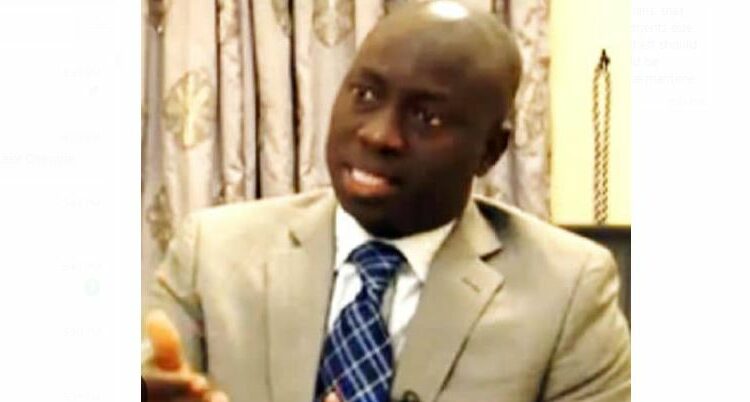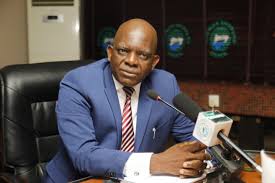Gbenga Leke Oyewole, a seasoned maritime security expert and former Senior Special Assistant on Maritime Services to ex-President Goodluck Jonathan, has been an outspoken advocate for enhanced security measures within Nigeria’s maritime domain. With years of experience in both government and the private sector, Oyewole is renowned for his insight into the interconnectedness of land and sea-based criminal activities, particularly the recent rise in maritime kidnappings. In this interview with Oluyinka Onigbinde he sheds light on the challenges of tackling maritime crimes and the critical role technology and government agencies must play in safeguarding Nigeria’s waters.

It seems that criminal activities, such as kidnapping, are no longer confined to land and are now happening at sea. What are your thoughts on this development?
It’s unfortunate that the menace is spreading. It’s going from land to sea now. Just like I used to say, the crimes on the water started on land. Any proceeds of criminality in the ocean or on the sea are also spent on land. So, they are intertwined. It’s simply an extension of the kidnapping menace that happens on land now spreading to the seas.
Why do you think maritime workers are being targeted?
The criminals have figured out that if they catch a maritime worker, they’ll likely get some money from them. The maritime domain is denominated in dollars, and that could be a reason it has spread there. But the fact that it’s spreading at all is very worrisome.
What role should the government play in tackling this?
While individuals can do whatever they can to protect themselves, the government needs to play a vital role. It’s not possible, for example, that an American is kidnapped, and there’s a ransom negotiation without the government finding the kidnappers. The lack of technology in prosecuting the war against kidnappers is a major issue. The government must deploy the right technology to get to them.
So, you believe technology is the answer?
Absolutely. As long as criminals use phones or other means of communication to link with the people paying the ransom, the government should know who is talking and where they are. It’s that simple. If the government isn’t deploying the right technology or strategies, that’s a problem.
How about maritime-specific challenges, like tracking kidnappers at sea?
When someone is kidnapped on water, the criminals still have to move in open space for a long time, even if they’re eventually keeping the victim in a creek or bringing them to town. Whether it’s taking 10 seafarers or approaching large boats, we should be able to track whatever they use. It’s not just about AIS (Automatic Identification Systems); we can cover our coasts effectively. Thank God the Navy is now using cameras, but we need to ensure all of our waters are covered and that we’re using the best technologies.
You mentioned the use of technology again. Could you expand on that?
Even basic things like bank transactions can be tracked, so why does it seem like maritime kidnappings are impossible to resolve? It’s a lack of proper application of technology. We need to keep pressing the government and agencies to do their part. Agencies like NIMASA have a key role to play because they understand the maritime domain better than anyone.
Speaking of NIMASA, what role do you think they should play in addressing maritime security?
NIMASA has a critical role in maintaining safety and security in maritime space. But, let’s be clear, they are not a security agency equipped with guns. Their focus should be on ISPS (International Ship and Port Facility Security), ensuring the safety of seafarers and cargo. Unfortunately, even with the NIMASA Deep Blue Project, which cost over hundred million dollars for security, we still have to ask, “Is it working?” That’s a serious question we need to ask. And why will it work if the government doesn’t fully support the project?
Tell us about the Deep Blue Project?
During the days of Global West, they bought and maintained vessels for NIMASA. They weren’t even paid until they hit certain benchmarks, which allowed NIMASA to generate additional revenue. But now, the government spent $195 million on things that nobody seems to account for. The assets were distributed across different agencies. And have you ever seen two government agencies work seamlessly together? That’s why automation is essential. We need seamless exchange of data and information between agencies. That’s the difference between us and advanced countries.
Are you suggesting that lack of collaboration between agencies is part of the problem?
Exactly. Even if the President or Minister tells these agencies to work together, they’ll agree and then go their separate ways. The only solution is automation. In advanced countries, technology makes it hard to get away with crimes. But here, we still rely on paper trails, which makes things easy to hide. Agencies like NIMASA and the Navy need to work together using advanced technologies to tackle maritime crimes.
What’s your take on the capacity of the Navy and Marine Police to handle these challenges?
The Navy and Marine Police are supposed to work together, but we see rivalry between them. For instance, if the Navy makes an arrest at sea, they hand the case over to the police, who know little about maritime law. You end up with judges and police officers dealing with maritime criminals they can’t properly prosecute. This leads to the criminals being released and returning to their activities. We need better coordination between agencies and stronger legal frameworks to stop this cycle.
In conclusion, what would you say the government should prioritize?
The government needs to understand its role and ensure all agencies are working together toward the same goal. Agencies like NIMASA must deploy the right technologies to ensure maritime security, and law enforcement must have the capacity to prosecute these criminals effectively. Only then will we see real change.















